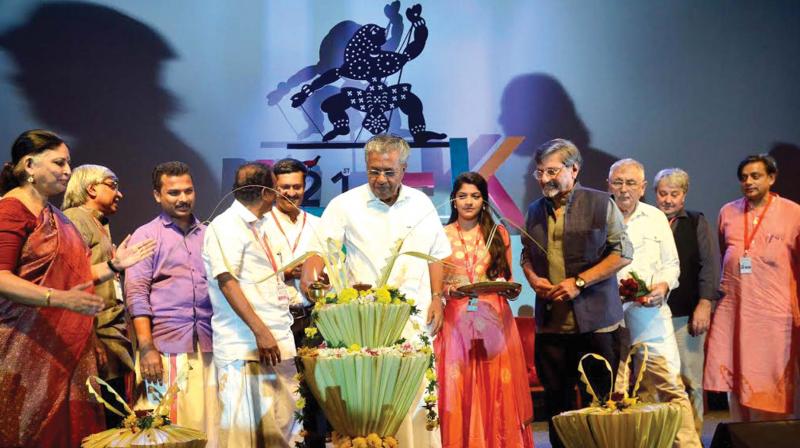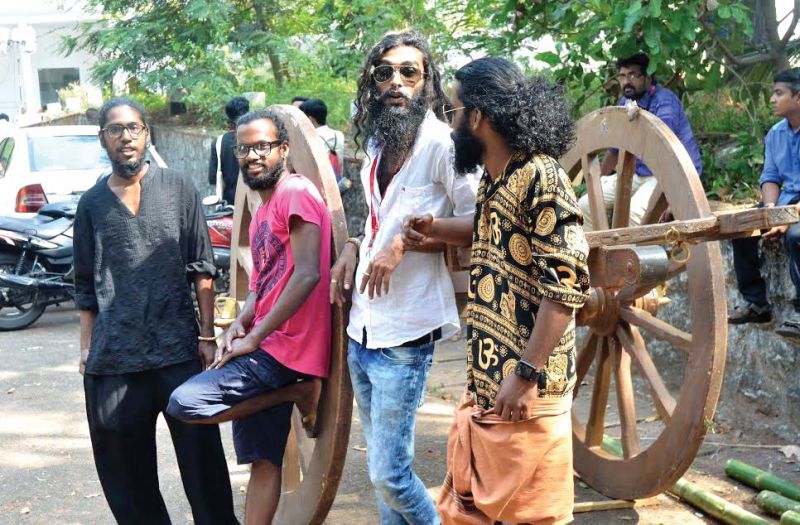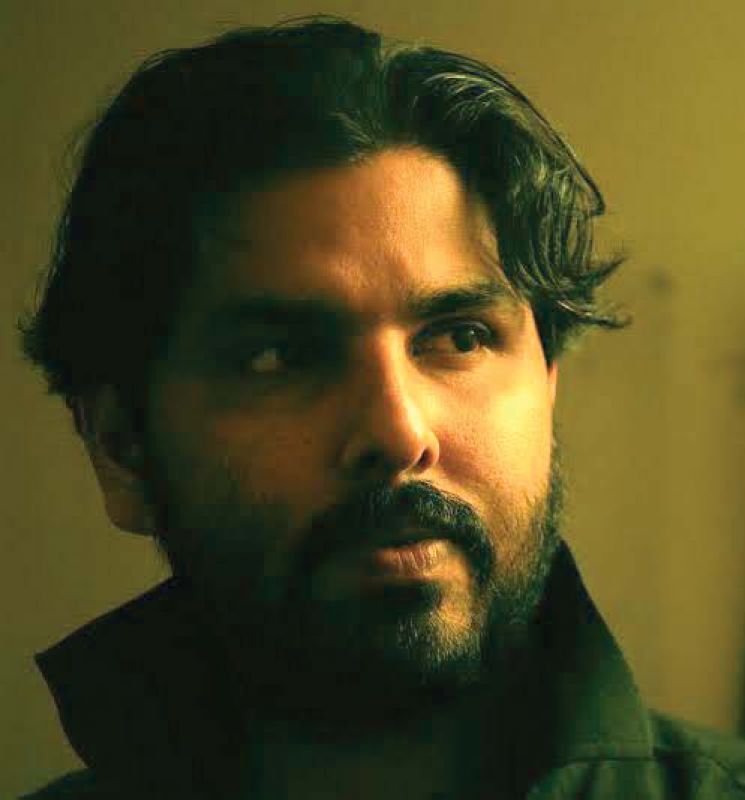India's most open' film fest begins

THIRUVANANTHAPURAM: The venue of the inaugural function of the 21st IFFK, the sprawling Nishagandhi auditorium, turned out to be symbolic in reverse. The venue did not reflect the mood of the festival, instead it offered a profound contrast. The formerly open-air auditorium, with a capacity to hold 3000, is no more open, it has been permanently roofed by an army-green sturdy sheet, which when viewed from a bird's vantage will look like a giant green buterfly. But IFFK, from its 21st version on, will be open than ever before. For the first-time ever, the festival recognised the presence of the third gender; it gave out delegate passes to the transgender community, and, what’s more, some of the theatres will have separate toilets for TGs.
Chalachithra Academy chairman Kamal, while opening his speech at the inaugural function, addressed not just brothers and sisters, but also transgender friends. The guest of honour, Amol Palekar, could not have been more thrilled. “My film ‘Daayra’ was denied rightful entry to IFFI, when it was held in this city in 1997. But the passion of film lovers in this city allowed me to hold a parallel screening for my film,” he said and added: “Incidentally ‘Daayra’ was a film about transgenders and I feel proud that this city has become the first one in the country to throw open the doors of their film festival to transgenders who have been discriminated for so long.” According to culture minister A K Balan, IFFK is also the festival with the largest number of women participants.
The 21st IFFK will also throw light on the suffering of migrants. The opening film, the Afghan movie ‘Raftan’, which is about a young Iranian couple’s attempt to flee their country for Europe, has set the tone. Mr Balan said the death of three-year-old Kurdish boy Alan Kurdi whose dead body was washed up on the shores of the Mediterranean Sea would be the tragedy that would animate the 21st IFFK. As many as 184 films from 62 countries will be showcased at the IFFK in 490 screenings. There will nine sections: competition films (instead of the usual 14, there will be 15 competition films), ‘curated’ sections, Indian Cinema Now, World Cinema, Malayalam Cinema Today, Country Focus (Kazhakhstan), Jury films, retrospectives and homages.
The festival office and premises became alive with delegates even before its official inauguration of the IFFK in Thiruvananthapuram on Friday. (Photo: DC)
The retrospectives are of British filmmaker Ken Loach and south Indian filmmaker K.S. Sethuma-dhavan. There will also be a special screening of Iranian auteur Mohsen Makhmalbaf’s ‘The Nights of Zayandeh-Rood’, the film that was spirited out of Iran’s archives 26 years after it was banned by the Shah. The films will be shown in 11 theatres, with a total capacity of 9000. The six-member jury will be headed by Palestine filmmaker Michel Khleifi and will include Seema Biswas, Kazhakstan filmmaker Serik Aprymov, Iranian actress Baran Kosari, and Durban Film Festival programmer Pedro Pimenta.
There will also be FIPRESCI and Netpac juries. The customary Aravin-dan Memorial lecture will be delivered by Ethiopian writer and director Haile Gerima, known for his highly acclaimed movie 'Sankofa' (1993). An alumnus of the University of California, Los Angeles (UCLA) School of Film and Television, Gerima has spent over 40 year making high value, low budget films outside of commercial institutions.
Plum seats reserved for VIPs at Tagore Theatre
The organizers of the International Film Festival of Kerala (IFFK) may repeatedly swear by its non-elitism, but Tagore Theatre’s plum seats were reserved for VIPs at the first show on the first day.The viewers who proceeded to occupy a few vacant seats at one of the top rows were stopped, as an official informed them that it was reserved for VIPs. The official told Deccan Chronicle that there were instructions from the Chalachitra Academy to reserve the seat for VIPs. However, no one had mentioned who these VIPs were. So whoever who tried to sit in these seats would be asked if they were VIPs. Viewers who were denied the seats would scowl at the official.
One of those to be stopped from sitting here was filmmaker Lal Jose, as the official did not know him by his face. As soon as he made his identity clear, he was allowed to sit. “He said that for a moment he doubted if he was not a VIP,” the official said. As the seats remained vacant till 10 a.m, the show’s start time, another official informed that the VIPs can now be accommodated on the balcony. (Tagore balcony has poorer seats.)
DC asked Academy chairperson Kamal if there were VIP seats at IFFK. He looked shocked, and said he would inquire into it. When the same question was put to the festival’s artistic director Bina Paul, she said, “Not a single seat was reserved. I was there.” When it was pointed out that this reporter saw it happen, she said that they might have been expecting a minister or a guest. When asked to define who these guests were, Bina Paul said that some seats would be reserved for jury, filmmakers who show their films, critics and others who will be taking part in IFFK events. The official in question did not even know which guest was expected and was only waiting for a familiar face.
Ruckus as media passes were not ready
The media cell at IFFK was at the receiving end of a lot of flak, as media passes were not ready on Friday morning. Some who had to be turned away as their passes were not ready, suspected that there was discrimination in the delivering of passes. They alleged that certain media agencies with allegiance to the Left government were given the passes. The officials and volunteers looked helpless as some started shouting at them. There was a shortage in the number of RFID cards delivered, they said.
“We had given an order for 13,000 RFID cards. However, towards the final days several registrations had happened. Since media was the last to register, their passes were printed on the cards only in the end,” an official said. Booklets too fell short. This time there were close to 2000 registrations from the media fraternity, according to officials. Around a 1000 media passes could be delivered before the first show. As the passes were awaited, officials allowed entry for the media persons whose registrations were approved.
IFFK regular who made it to Cannes
‘Randu Kurippukal’ (Two Notes), a diploma film, in which the actors were the filmmaker’s family, is now touring the world and reaping gold at festivals. The short film by K. Gireesh Kumar was screened at Cannes Short Film Corner and the Indian Panorama non-feature section of International Film Festival of India 2016. It was not shortlisted at the International Documentary and Short Film Festival of Kerala. “That is fine. Each selection jury has its own aesthetics and point of view,” says Gireesh. The film has won the Golden Royal Bengal Tiger Award at Kolkata International Film Festival and John Abraham National Award 2016 at SiGNS Film Festival. When Deccan Chronicle rang him up, Gireesh was about to leave for Mumbai where the film would be screened at the Cut-in National Students Festival 2016.
One literally runs out of breath listing all the accolades it has heaped. But he says, “it is a good film not just because others say it is. It is a serious attempt at good cinema. Moreover, it is very challenging to get non-actors, especially one’s family, to act.” Among the ‘actors’ were his nine-month-old son Satyajit. “I am his father, no? I know how to make him laugh,” he says. “Or to cry,” he adds. Neither his parents, both retired teachers, nor his wife has acted even in a school skit. The only experienced actor in the films is his friend P T Manoj, a painter, who has acted in amateur theatre productions.
*He purposely chose the language they use in their daily life for dialogues. “The film is very local, but in content, it is universal. Cinema, anyway, has a language, which speaks without the aid of any spoken language,” he says. He is no stranger to awards. Last year, his documentary ‘8 Rooms and 9 Doors’ had won the Golden Owl Award at the Cut-in Festival. And his short film ‘Jalasayanam’ won the Golden Royal Bengal Tiger Award at KIFF in 2014 as well as XIX International Faludi Academia Film Institute Festival, Budapest, Hungary, in 2015.
He is from Trikkaripur near Payyannur, where numerous film societies like John Abraham’s Odessa would show world cinema at least once a month. “When one grows up in a place vibrant with theatre, Theyyam and cinema, it is but natural to be a filmmaker,” he says. Gireesh has been a regular at IFFK, except during the time he was studying at Satyajit Ray Film and Television Institute (SRFTI). “IFFK is our Sabarimala,” he says. To study, he went on leave for five years from his job as a teacher at Government LPS, Manjeswaram.



